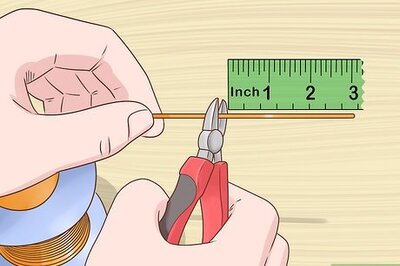
views

For the heading, Enter in your name and the targeted job title. if the position has an identification number, add it as well. For example: Your Name - Executive Director (#1234AB56)

Remove any unique headings. Stick with the more conventional ones. Knowledge, Skills, and Abilities (KSA) are three that you should definitely use. Others are Summary, Work Experience, and Education.

Don't add any fancy editing tricks. Just remember, if it doesn't show up in a text file, then you don't need it. Things like, columns, tables, text boxes, and other formatting help that a regular word processor can insert into the document.

Remove any special characters or fancy bullets. They will just confuse the system.

Stick with the basics. Don't use any of the fancier fonts. Some good ones to use are Arial, Georgia, Impact, Courier, Lucinda, Tahoma or Trebuchet.

Make sure the paper or background is white and the print is black.

Don't underline words. It can affect the legibility of letters that drop down, like g, j, y, p, etc.

Check your resume for spelling errors. Once you have checked it, have a couple of friends proof it. Maybe even a frenemy or two.

Put in the contact information in the body of your resume, not the header or footer.

While you may save it in your current version of Windows, also make sure to save it in a *.doc or *.txt format, as well.

Don't use templates. They tend to have all kinds of markup behind the scenes that you can't see, but the ATS can.

Don't use page numbers.

Write your employment history in the same format. Be sure to list it in reverse chronological order. Last job first. When writing your employment history, present the information for each employer in the same order, i.e., company name, title, city, state, and date, and in reverse chronological order.




















Comments
0 comment